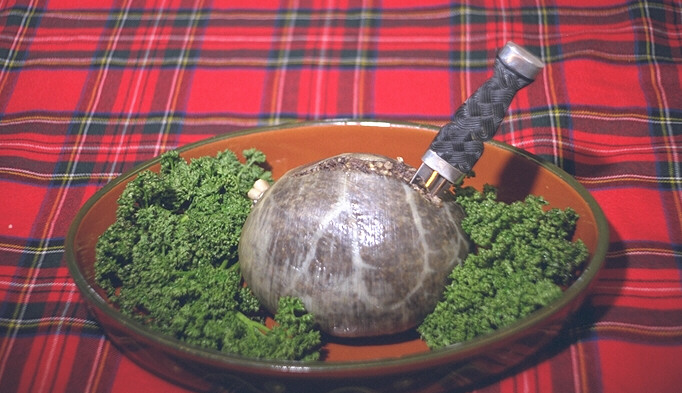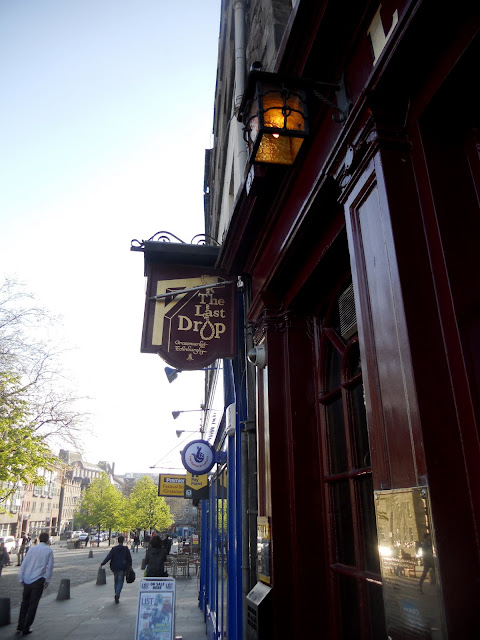The English and the French have a longstanding tradition of hating each other. The English call the French "frogs," and the French call them "roast beef." One can't help but feel disappointed in the France's name-calling ability (one would think that the French would be amazing at that kind of thing...) I believe this stems from the fact that the English and the French are opposite from each other in nearly every way. Just as a quick example, the entrances to the London Underground look like your standard public transportation entryways, whereas the entrances to the Paris Metro look like portals to some sort of Grecian afterlife.

In England, I've seen entire transactions take place in stores where not a single word is spoken. In England, you show your thanks with a brief but sincere smile, or possibly a "cheers" if you're feeling reckless. In France, the moment you walk into a store you must say "bonjour" to whoever is behind the counter, and when you leave you must say "merci." England has a monarchy, France beheaded theirs. England's stuck with the same government and reformed throughout the centuries, France is currently working on government number five, English is a free flowing and adaptive language, the French language is tightly regulated by an academy of scholars. The differences go on and on, when England goes right, it seems that France must go left.And though my Anglophilia dictates that my allegiance be with the English through and through (and it is!) I longed to go to Paris.

You can see France from the coasts of England, I've heard that in certain areas the French radio stations come in clearer than the English ones, when I came to England, I expected that everyone would have been to Paris, but this isn't necessarily true. To be sure, more people had been to Paris, and it certainly seemed a little more banal than in the United States, but not by much. Bill Bryson talks about how the English have their own sense of distance. For example, the distance from London to Edinburgh (an eight-hour train ride) is deemed "far," the distance from London to the United States (New York, Los Angeles, it doesn't seem to matter) is deemed "rather far," and the distance between London and Paris is deemed as being a breadth so great that one might as well travel to Jupiter (at least then one wouldn't have to deal with the French or the Euro.) Because of this, it seems like I've met more English people who have been to my country, which is an eight to twelve hour flight away, than I've met people who've taken the two-hour train ride\hour flight to Paris. And so I traveled to Paris with much trepidation.

Because I did not speak the language, I had to do a thing that I hate doing, which is asking for help from other people. I so often try and go it alone. In planning my trip to Paris I didn't even bother trying to get anyone else to come with me because I didn't want to get bogged down with trying to make plans and then not get to do everything I wanted to do or even worse not going at all because the plans never came to fruition. But if I wanted to go to Paris, I would have to hope that at least some of them would speak English, and that at least some of them would be nice enough to guide me so that I wouldn't stick out like a sore thumb in their city. In short, I would have to rely on the goodness in other people. A goodness that I claim to believe in but that I have a hard time depending on. Even worse, I had to put my faith in the benevolence of the French, which is a difficult thing to do when you've been raised in America.

Waiting in St. Pancras for the Eurostar, I made a list in my journal of the reasons I was afraid of traveling to Paris. I had been seized by fear and wanted to travel back to my room in Norwich, and I find that the most helpful thing I can do in such situations is to write.
Here is the list verbatim from my journal:
"May 19, 2011
Reasons to be scared of going to Paris:
1. It took me this long to figure out how to function in my own culture, it seems like to switch language and landmass now would just be cruel.
2. The language.
3. The gypsies.
4. America's longstanding frenemy relationship with the French.
5. The French.
6. The language.
7. Looking like an idiot. Or a tourist.
8. Not spending my time wisely, not getting to do everything. Wasting opportunities.
9. Getting into a fatal accident.
10. Getting lost.
11. Running out of money.
12. The language."
All these things turned over and over in the rock tumbler that is my mind. I had talked with my cousin, Annie, about going to a country where you didn't know the language or the culture and how much it frightened me. She told me that not knowing the language was the best thing about traveling; that feeling of being utterly lost and only knowing two or three phrases in the native tongue. She was right.

I knew a total of two phrases in French; I knew how to order (necessary for the consumption of delicious French food,) and I knew how to ask people if they spoke English (though I was ready to meet them halfway with my nigh three month of German or my rapidly deteriorating Spanish.) Though I needn't have worried so much about the language. Nearly everyone in Paris speaks English, the trick is that you have to try speaking French. They seem to understand that their language is intentionally hard and were always good natured when I butchered it with my minimal understanding of Gallic pronunciation. And when I say everyone spoke English, I mean everyone. A homeless man approached me, asking me for money. I told him that "Je ne parle francais" (I was trying to branch out) and as I walked on he shouted out, "Je ne parle PAS francais; I don't speak French!" What hope does America have for the future when even the French homeless are bilingual?

I used to think that people who talked at end about their trips to Paris were such snobs. "Oh you know, we just went to this delightful little bistro on the corner and got a crepe and a coffee and sat and had lunch in the Luxembourg gardens." But after going to Paris I realize that they aren't snobs, thats just how Paris is. In Paris, everything one does is fabulous with little to no effort. I got dinner one night at... this delightful little bistro on the corner. A croque monsieur and a can of Orangina. And I realized I was near the Seine, the river that runs through through the city that has been romanticized by such films as "An Education" and "An American in Paris." So I sat on the embankment, began to eat my dinner, and then I realized that through no direct effort of my own, I was living the standard cinematic montage of Paris. In the gramophone in my mind I played some Edith Piaf.

As my trip went on, many of my assumptions about the French began to fade away. I found the French to be ridiculously nice, which was in opposition to their snooty representation in American pop culture. I was always told that Parisian drivers are insane and that Paris itself is ridiculously dirty, but I found that the drivers were not nearly as homicidal nor was the filth nearly as ubiquitous as my own beloved Los Angeles (though I can confirm that the French do in fact, all chain smoke like Bette Davis on a Thursday.)

I think that my biggest fear was in going to Paris was that I would be incredibly disappointed. I had built it up in my mind for so long, I had heard so many stories, I had so many expectations. I never really thought that I was going to make it to Paris, or even come to Europe. It seemed like something other, more glamorous people did, but not me. To me the Mona Lisa would always be an answer to a test question and not an actual painting. Walking around Paris, I felt all these fears lift. The world was full of hope and possibilities. And though I knew this feeling would not last, because such feeling cannot last, I was happy to be in the moment. I was happy to be in Paris.

























